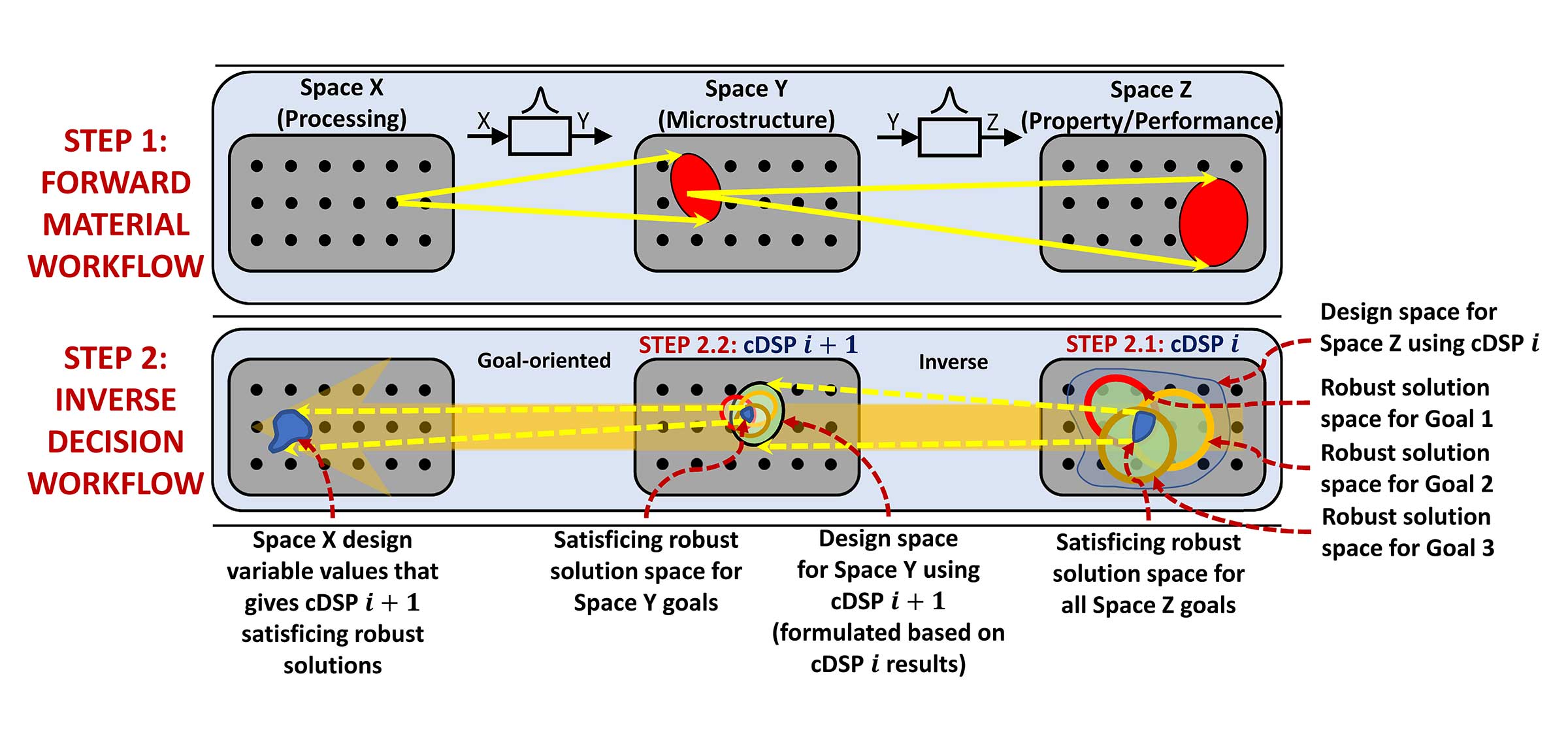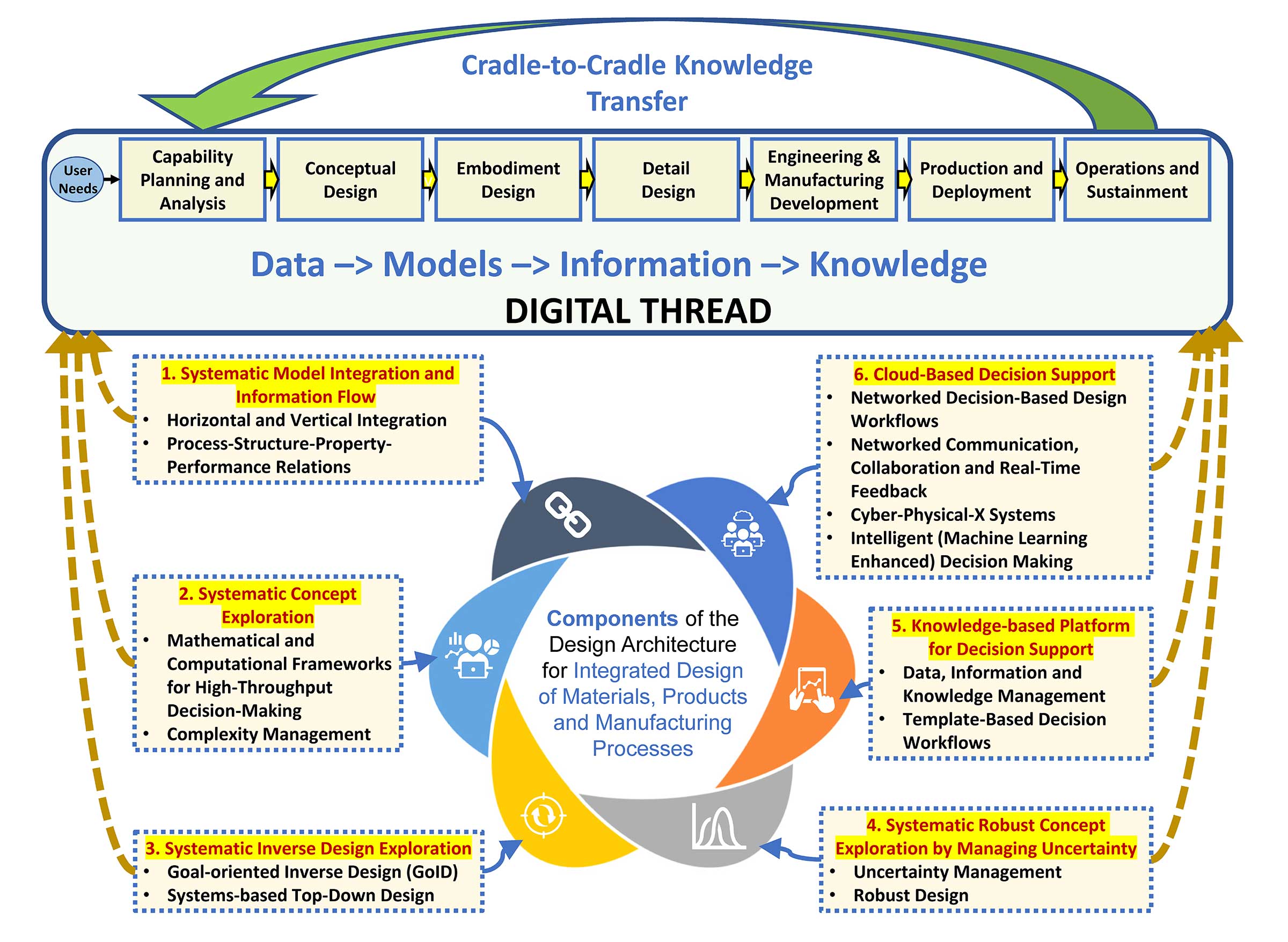

We are focused on the discovery, learning, and engagement in systems-based robust co-design of complex engineered systems under uncertainty. The foundational research question that we plan to address: What are the principles underlying rapid and robust concept exploration of complex engineered systems involving materials, products and manufacturing processes when simulation models are typically incomplete and inaccurate?

As in product design, uncertainty and variability are prevalent in materials and manufacturing processing design. Examples include bias and uncertainty in simulation models, broad ranges of operating conditions, design changes during a material/product development process, and processing-induced variability in many aspects of a multi-scale material structure. Robust product and material design methods are needed to ensure design feasibility and to minimize the sensitivity of performance objectives with respect to variations in either a product or a material. We are interested in developing mathematical models for characterizing variability in materials design and establishing robust material design techniques for assessing and managing the impact of uncertainty and variability on the performance of multifunctional materials and parent products. This task is especially challenging in the context of the following topics that we plan to explore: i) Multiscale and Multidisciplinary Robust Design under Uncertainty, and ii) Advanced manufacturing process design like Robust Design for Additive Manufacturing (RDfAM).

In order to foster integrated material, product, and manufacturing process design in the digitized world and realize its full potentials, there is a need to facilitate a network of participants, which includes material scientists, systems designers, software developers, end service customers to come together and share material/product/manufacturing process/market data, information, knowledge, and resources instantly and collaborate so as to facilitate a cost-effective co-creation of value supporting open innovation. This necessitates the creation of computational platforms that enable seamless, yet controllable, information, knowledge and resource sharing supporting the integrated design of materials, products and manufacturing processes. The domain-independent platform thus developed should support model development; model and simulation software integration; problem formulation; design and solution space exploration and visualization; data, information and knowledge management (capture, store, retrieve); and knowledge-based design guidance so as to provide design decision support for materials and product designers who might be collaborating from different parts of the world. The platform should support designers in coming with smart and intelligent manufacturing procedures for product realization with reduced design and production time in developing robust products. Industry 4.0, a transformative industrial revolution with its new product development paradigms like cloud-based design and cloud-based manufacturing supports this need. In this Research Thrust, our goal is to shift to new product development paradigms happening due to Industry 4.0 like cloud-based design and manufacturing. We plan to address how the technologies associated with Industry 4.0, especially cloud-based design can change the way we realize materials and products and the way they are designed. CBDS is a cloud-based decision support platform that is being developed in collaboration with the International Systems Realization Partnership (ISRP) involving the University of Oklahoma, Beijing Institute of Technology, Purdue University, University at Buffalo and SRL@FIT. CBDS is anchored in modeling decision-related knowledge with decision support templates using ontologies to facilitate execution, knowledge capture, storage, and reuse via the cloud.

© Florida Institute of Technology, All Rights Reserved